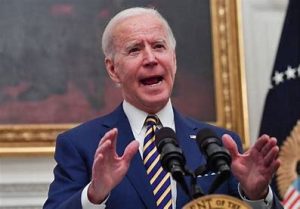According to experts, the Biden administration’s approach of fostering a friendly relationship with China has yielded minimal tangible benefits, and the United States has failed to capitalize on the limited concessions it has received.

Gordon Chang, a China expert and senior fellow at the Gatestone Institute, expressed his view, stating, “The one thing that we’ve got is time. The United States is not ready to defend itself and its allies and partners, and by appeasing China, we have bought a little bit of time.” He pointed out that despite buying time, there has been insufficient action from the Pentagon to adequately prepare for potential challenges, characterizing it as a period of wasted time with minimal gains.
The first face-to-face meeting between President Biden and Chinese President Xi Jinping in 2022 occurred during the G-20 summit in Indonesia. Additionally, Xi visited the U.S. for the first time since 2018, meeting with Biden in San Francisco on the sidelines of the Asian-Pacific Economic Cooperation conference.
During these meetings, agreements were reached on military-to-military communications and addressing the manufacture and distribution of fentanyl, a potent synthetic opioid. The majority of precursor chemicals required for producing fentanyl originate in China and Mexico. Despite these agreements, experts suggest that the U.S. has not fully taken advantage of the concessions obtained.
National Security Advisor Jake Sullivan recently addressed the administration’s stance on China at the World Economic Forum in Davos. Sullivan acknowledged that the United States is competing with China on multiple fronts but emphasized that the goal is not confrontation or conflict. Instead, the administration aims to manage the competition responsibly, intensifying diplomacy to reduce the risk of miscalculation.
Sullivan highlighted the positive aspects of the recent meeting between President Biden and President Xi, including the resumption of military-to-military communications. He claimed that this move is not only beneficial for the U.S.-China relationship but also contributes to regional and global stability by reducing the risk of unintended conflicts.
Despite these diplomatic efforts and statements, experts remain critical of the overall effectiveness of the Biden administration’s approach to China. The consensus is that the U.S. has not maximized its opportunities and concessions in dealing with China, potentially putting the nation and its allies at a strategic disadvantage in the long run. The focus on time bought through appeasement without adequate preparations raises concerns among experts about the nation’s overall readiness and posture in the face of evolving challenges.

